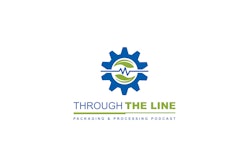The past few months have been eventful on the government reform front.
Although the effort was described as the elimination of “waste, fraud and abuse” from the federal government, instead, the administration, with apparently little if any consideration of regulatory agencies’ functions or effectiveness, issued wholesale reductions in the number of federal employees at each agency, sometimes with buyouts, more often via layoffs. It also eliminated or significantly reduced a range of government programs at most if not all regulatory agencies.
Perhaps you expected reductions like this would have involved close cooperation with, and input from, the relevant personnel at each agency. Or maybe you expected evaluation of the chores Congress told each agency to perform, and analysis of how well the agency was doing each. But that isn’t how this was done.
The goal of rooting out and eliminating “waste, fraud and abuse” is worthy, but the administration’s chosen methods are ill-suited to it, more arbitrary than logical. For example, at some agencies, pretty much any federal employees who were on ‘probationary status’—either because they were new to federal employment or just new to their job within an agency—were terminated, regardless of what they were or weren’t doing. It’s clear that not all of them were guilty of waste, or fraud, or abuse. Employees by the thousands at multiple agencies, in any and all job types, were encouraged to resign, and many did. Large numbers of other employees were eliminated as well, after which, frequently, thousands were quickly hired back, as the administration essentially admitted its mistakes in letting them go.
Meanwhile, federal workers are being required to prepare weekly reports on what they are doing, though the odds are low that anyone is basing termination decisions on those reports.
A few words about my particular angle on all this: I am an attorney in private practice who helps companies comply with laws and regulations, and I fight like heck on their behalf. I am well-acquainted with frustrating and burdensome regulatory requirements. But I am not a cynic about regulators and regulations, and don’t believe all or even most regulators are corrupt or lazy. I have long believed that on balance industry is usually helped, not hurt, by regulatory requirements that are clear, consistent, predictable, and fairly enforced, and operated by experienced, knowledgeable, responsive regulators. I also believe that most or all lawyers in similar roles have the same view.
Remember, every regulation is made for a purpose. If the purpose of a regulation is not needed anymore, or it’s too burdensome on businesses or people, then it would of course be good to eliminate the regulation. But wholesale and arbitrary cutting of personnel and budgets and regulations doesn’t appear to be aimed at those targets, and importantly, will certainly mean that purposes like food safety, drug safety, limiting pollution, providing healthcare for poor or disabled people, protecting consumers from banks cheating them, and many others, all will stop altogether or will be done in a worse way.
Worse how, you ask? Like no one at FDA to answer your questions or review your packaging Food Contact Notification or GRAS Notice, or delaying or withdrawing new regulations that would clarify what you can and can’t put on your food labels worse. Like forcing you to waste hours on the phone to get an answer at any agency worse. Or like stopping much government medical research to fight against diseases worse. Or like no one at the agency having any experience dealing with the scientific or mechanical issue the agency is responsible for overseeing worse. When the government downsizes haphazardly, the public is likely to face additional dangers and severe inconveniences that could’ve easily been avoided if the downsizing was done with a little more thought.
You may be thinking that this is the way private companies downsize, so what’s the big deal? Well, for one thing, private companies put a little more thought into choosing who they will downsize. And they do it, often, after sales go down so the need for employees is reduced. For another, remember that many of the functions of government are primarily focused on protecting public safety, while a company’s aim is to maximize profits and sales. (What’s more, if a private company’s business is aimed at protecting public safety, it has other incentives, such as avoiding lawsuits from injured consumers, to make sure to get that right even if it’s downsizing.)
Rooting out waste, fraud and abuse do not appear to be the real goal of this effort. What, then, is it really targeting? I have read several theories, but a common one it that it’s an ideologically driven program to destroy the administrative arms of the government so that every part of it is dependent only on the President. You will recall that in his first term, President Trump proposed replacing thousands of federal civil service employees with individuals whose primary qualification is loyalty to the President, rather than to the nation or the Constitution or laws. That appears to be part of what he’s doing now. Some folks suggest this would make it easier for him to dole out exceptions and favors from regulations to donors, friends or buyers of his products.
Some even assert that it’s not just that the President wants folks loyal to his preferences in place in every part of the government, it’s that, unlike most Americans, he doesn’t even want a government that protects people from unscrupulous business practices or unsafe foods or drugs or damage to the environment, or from unequal protection of the law or the vagaries of disease and poverty.
Is that a wild exaggeration, or will all his efforts truly make the federal government more effective and less corrupt?
We’ll see.
Eric Greenberg can be reached at [email protected]. Or visit his firm’s Web site at www.ericfgreenbergpc.com.
INFORMATIONAL ONLY, NOT LEGAL ADVICE.






















